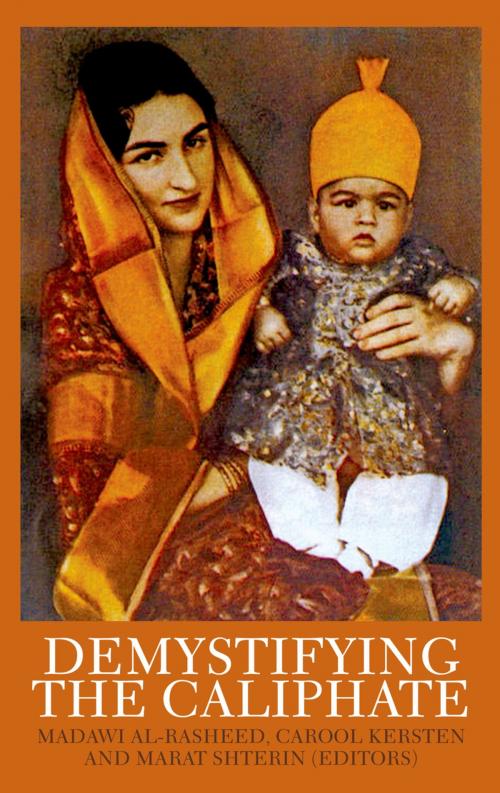Demystifying the Caliphate
Historical Memory and Contemporary Contexts
Nonfiction, Religion & Spirituality, Middle East Religions, Islam| Author: | ISBN: | 9780190257408 | |
| Publisher: | Oxford University Press | Publication: | November 12, 2012 |
| Imprint: | Oxford University Press | Language: | English |
| Author: | |
| ISBN: | 9780190257408 |
| Publisher: | Oxford University Press |
| Publication: | November 12, 2012 |
| Imprint: | Oxford University Press |
| Language: | English |
In Western popular imagination, the Caliphate often conjures up an array of negative images, while rallies organised in support of resurrecting the Caliphate are treated with a mixture of apprehension and disdain, as if they were the first steps towards usurping democracy. Yet these images and perceptions have little to do with reality. While some Muslims may be nostalgic for the Caliphate, only very few today seek to make that dream come true. Yet the Caliphate can be evoked as a powerful rallying call and a symbol that draws on an imagined past and longing for reproducing or emulating it as an ideal Islamic polity. The Caliphate today is a contested concept among many actors in the Muslim world, Europe and beyond, the reinvention and imagining of which may appear puzzling to most of us. Demystifying the Caliphate sheds light on both the historical debates following the demise of the last Ottoman Caliphate and controversies surrounding recent calls to resurrect it, transcending alarmist agendas to answer fundamental questions about why the memory of the Caliphate lingers on among diverse Muslims. From London to the Caucasus, to Jakarta, Istanbul, and Baghdad, the contributors explore the concept of the Caliphate and the re-imagining of the Muslim ummah as a diverse multi-ethnic community.
In Western popular imagination, the Caliphate often conjures up an array of negative images, while rallies organised in support of resurrecting the Caliphate are treated with a mixture of apprehension and disdain, as if they were the first steps towards usurping democracy. Yet these images and perceptions have little to do with reality. While some Muslims may be nostalgic for the Caliphate, only very few today seek to make that dream come true. Yet the Caliphate can be evoked as a powerful rallying call and a symbol that draws on an imagined past and longing for reproducing or emulating it as an ideal Islamic polity. The Caliphate today is a contested concept among many actors in the Muslim world, Europe and beyond, the reinvention and imagining of which may appear puzzling to most of us. Demystifying the Caliphate sheds light on both the historical debates following the demise of the last Ottoman Caliphate and controversies surrounding recent calls to resurrect it, transcending alarmist agendas to answer fundamental questions about why the memory of the Caliphate lingers on among diverse Muslims. From London to the Caucasus, to Jakarta, Istanbul, and Baghdad, the contributors explore the concept of the Caliphate and the re-imagining of the Muslim ummah as a diverse multi-ethnic community.















